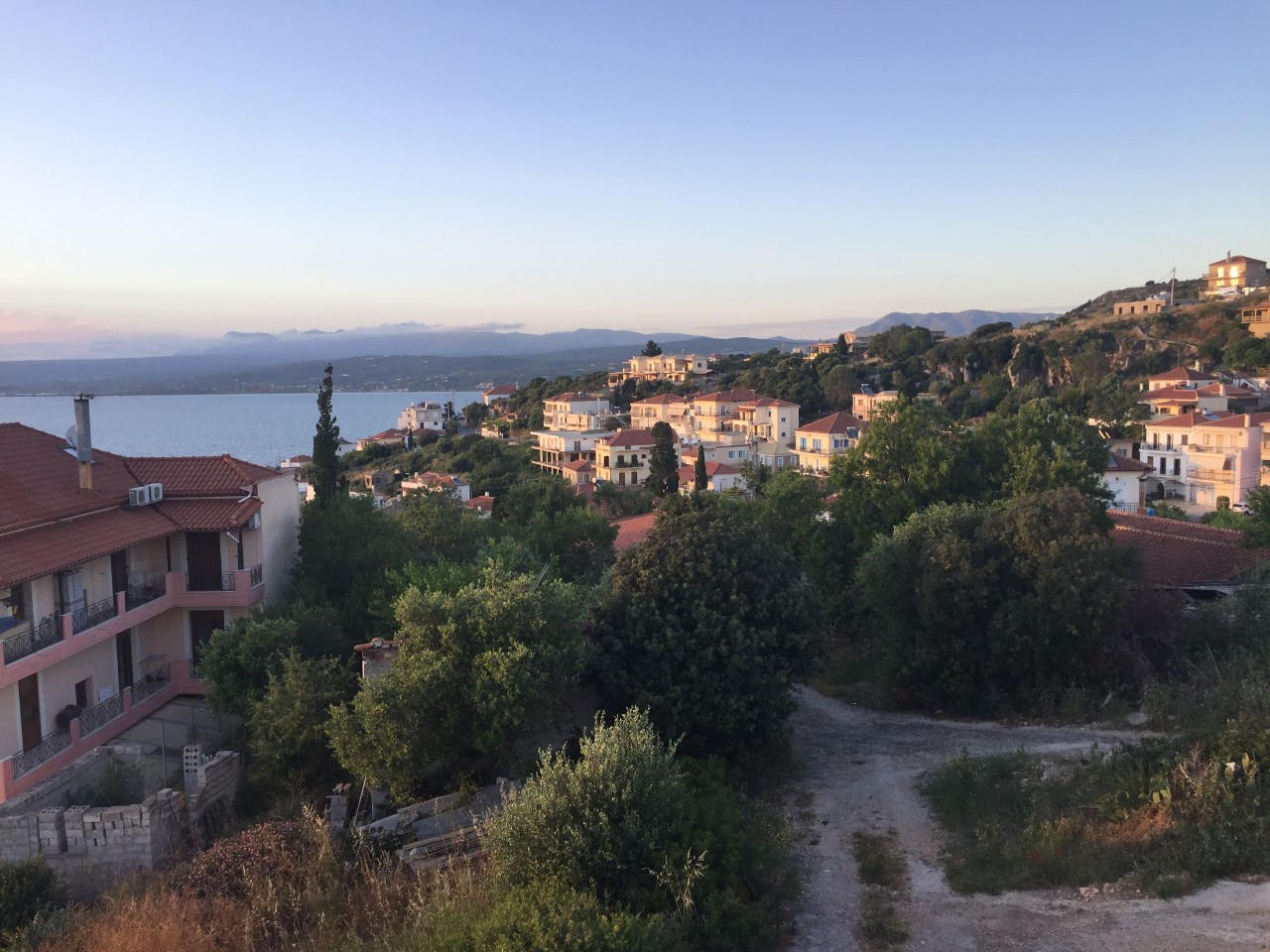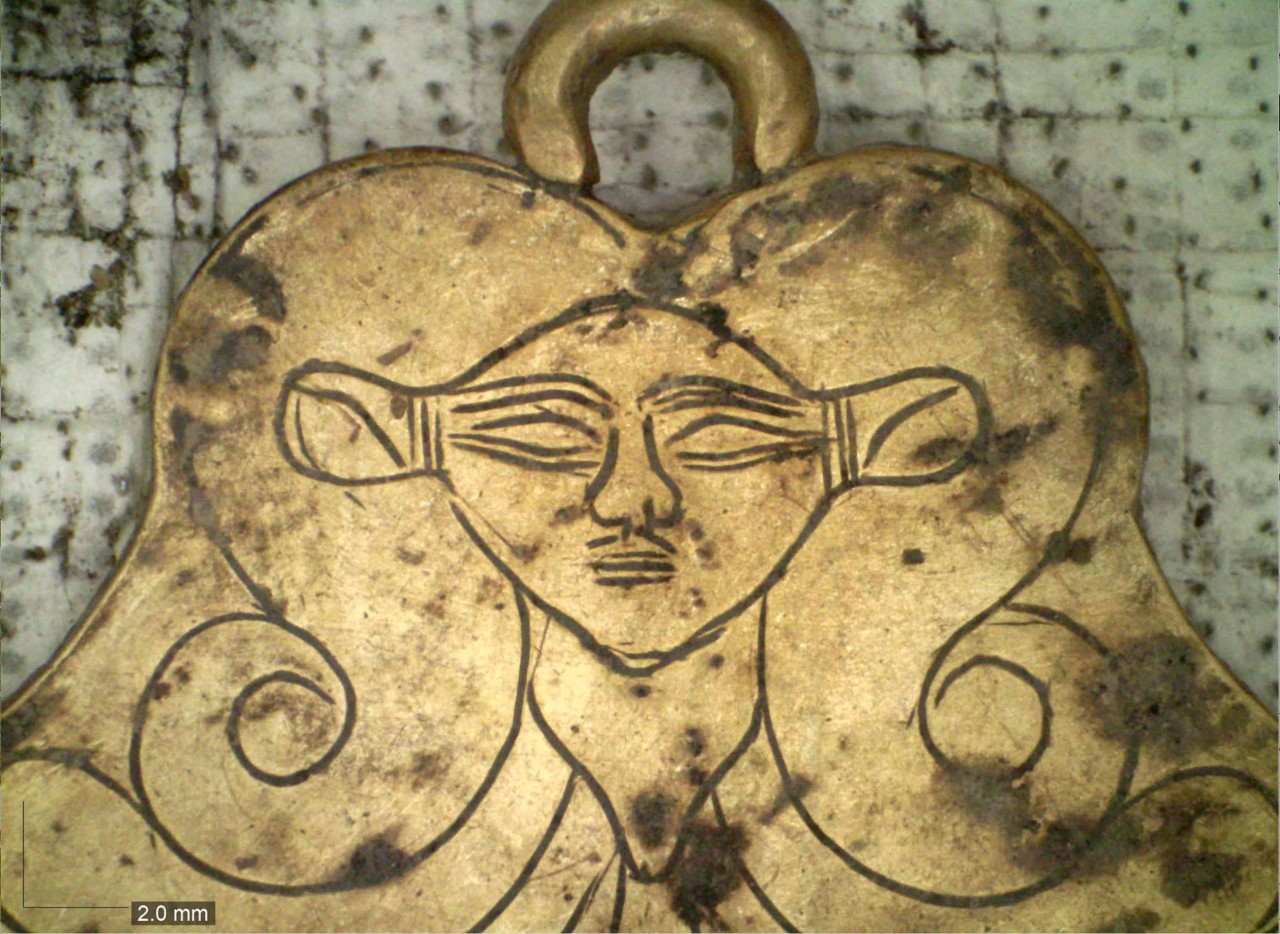First person
How my UC graduate program led me to a top-secret project in Greece
By Kerry Ulm, A&S ’19
In July 2018, I was working at the front desk of UC International when I received an email from Lora Arduser, the director of my graduate program in professional writing.
“Does this internship possibility sound like something you’d be interested in?”
Below that question was a forwarded message with scattered information: Classics Department... Excavation in Greece... Looking for a writing intern.
I immediately responded — of course, I’d be interested!
Less than a year later, after lots of string-pulling and with only a few more details, I found myself in the back seat of a lime green Fiat chatting with two archaeologists as we bounced southwest across the Peloponnese toward the little town of Pylos, Greece.

View of Pylos, Greece/Kerry Ulm
Pylos is a harbor town built on switchback roads and staircases overlooking the Bay of Navarino. About a half-hour’s drive around the bay is the Palace of Nestor, a Mycenaean stronghold some 3,300 years old and one of UC’s most famous, long-lasting research focuses.
In the early- to mid-20th century, the palace was discovered and excavated by UC classicist Carl Blegen and his team, bringing significant prestige to the university’s Classics department. Now a new project headed by UC archaeologists Jack Davis and Sharon Stocker is continuing the legacy by making further signif- icant discoveries around the palace, like the Griffin Warrior Tomb. First uncovered in 2015, the Griffin Warrior’s shaft grave was heralded as one of the most important finds in Greece in decades, and since then, further analysis of its contents has revealed impressive Minoan craftsmanship in artifacts like the Pylos Combat Agate and several gold signet rings.

Several gold pieces and stones were discovered in a pair of Bronze Age royal tombs at the excavation site. Photo/UC Classics
Up from the palace parking lot through some trees in what used to be a neighboring olive grove, Davis and Stocker’s current excava- tion site is surrounded by fences marked with signs asking wandering tourists not to take pictures. They’ve made another discovery — a pair of Bronze Age royal tombs — that went on to generate coverage by the New York Times, NPR, Time and others.
Throughout the summer, I helped prepare for the new discovery’s announcement by recre- ating the excavation’s website, putting together a monthly newsletter to key donors, preparing social media posts and even spending a few days digging in the trenches to get a better sense of their work. At times it was challenging, particularly because the secrecy limited what material I could publish, but I loved the puzzle of balancing the legacy of the site with the current developments.
“I can’t wait to see over the coming years what opportunities unexpectedly pop up. I know from experience there will be many surprises.”
When I look back at my academic trajectory, I can see how it led to this point, but if I’d been asked seven years ago what my plan was, there’s no way I would have predicted I’d end up on an archaeological dig.
I started as an undergraduate at Ohio State University undecided about my major. I knew I wanted to travel, write and learn about as many subjects as possible, but I had no idea what career path would take me there. Eventually, I settled on an unconventional combination of fields of study: a major in international studies with a specialization in globalization studies and minors in economics, French and creative writing. I went on to pursue a master’s degree in creative writing at University College Dublin in Ireland and then one in professional writing in my hometown at UC.
Interdisciplinary degrees can be worrisome. Their diplomas don’t usually come with tidy job titles like “teacher” or “engineer,” but I’ve found they tend to pay off in some unique and unexpected ways.
The beautiful thing about universities is that they’re filled with interdisciplinary opportunities. At UC, the professional writing program is about more than just putting words together. Our work includes document design and content management, marketing and information visualization — anything that helps communicate information more clearly. Outside my program, I’ve also been able to complete a certificate in film and media studies and take a couple of drawing classes. The most surprising opportunity, though, was definitely heading to Greece. But that’s where I found myself last summer, actually doing what I had set out as an undergrad to do: traveling, writing, and learning about a range of subjects from experts in everything from the Mycenaean civilization to photography to database management.
I graduated this past December and, once again, it’s time to decide what’s next for my dream. My options have expanded, but I still prioritize traveling, writing and learning. It’s stressful, of course, but also exciting. I can’t wait to see over the coming years what oppor- tunities unexpectedly pop up. I know from experience there will be many surprises.
FEATURE STORIES
Hope after hate
UC professor and Emmy-award winning journalist shares her father’s Holocaust survival story with lessons to inspire action against hatred and bigotry today.
Good neighbors - better partners
UC, Cincinnati Public Schools work together to create something special at a new school.
Role reversal
UC breast cancer surgeon Beth Shaughnessy learns firsthand what it’s like to overcome cancer and keeps kindness and positivity at the center of her healing
Traffic of tomorrow
More driverless cars. More networked roads. More naps. UC is helping change how we drive.









